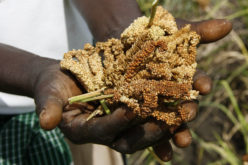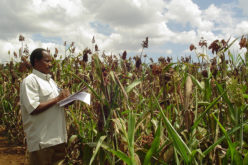On February 17, 2016, REPOA released its Post-2015 Data Test report entitled Assessing Data for the Sustainable Development Goals in Tanzania (see report highlights here). Based on consultations with local stakeholders, the report highlights the relevance of the Sustainable Development Goals (SDGs) for Tanzania, unpacks the current state of data availability and quality at the national level, reviews initiatives at the national level that support the data revolution, and provides insights on the capacity development needs of official and unofficial data producers and users going forward. The report emphasises the issue of financial sustainability to maintain the quality and consistency of statistics as critical.
Realising the SDGs
With respect to realising the SDGs in Tanzania, the report notes the importance of ensuring that no one is left behind, that more and better data is needed, and that attention is needed to strengthen domestic resource mobilisation and intensively seek other sources of development finance given the economic context in the developed world. Additional finance is needed to both realise the goals more generally, and support sufficient monitoring of progress.
Address physical infrastructure needs
In terms of statistical activities, a resource gap exists for physical infrastructure that is necessary for productive working environments, such as improved facilities for the National Bureau of Statistics (NBS) and the Office of Chief Government Statistician, transport facilities, information and communications technology infrastructure, and modern computers and software. There is also room to support greater knowledge and technology transfer. For example, NBS could establish steady institutional partnerships with one or several experienced national statistical offices to continue strengthening the entire national statistical system and benefit from the transfer of technology.
Support national statistical priorities
In addition to physical infrastructure-related challenges, monitoring the SDGs in Tanzania will likely be hindered by data availability and consistency. Data collected in Tanzania, almost all of which are produced and hosted by the Tanzanian government, are sponsored by donors that may simply want national-level data for comparative purposes. In many cases, there is a need for data to be provided at lower levels of disaggregation.
The data revolution has a potential role to play in boosting data availability, specifically in terms of improving the frequency of data collection and disaggregation at all levels. The use of robust sample sizes by the NBS would enable better sub-national analysis and improve comparisons according to location and gender.
Address legal barriers to data accessibility
Moreover, legal barriers need to be addressed. The NBS collects and analyses data. However, analysis can be quite time consuming, and lead to general reports that are only available two years after data has been collected. The current policy is that data is only released following the production of a general report. This means that by the time data is available to other stakeholders, it is already two years old. Should the government continue with the current policy, then analytical capacity will need to be strengthening in the NBS to increase the speed of data analysis and publication. Another solution could be for the government to allow the release of data earlier but ask researchers and analysts to share their results with the NBS before they are published.
Harmonise data collection processes across government
Moreover, various institutions produce data based on their functions in society. However, data production is not harmonised in such a way that other institutions may utilise those data. A similar situation exists for data that supports the production of statistics, such as geo-data in a geographic information system. Population and other statistics should form “layers” in a national geo-data bank, where statistics support geo-data and other data. There have been improvements in this area, but obstacles to sharing data still exist, even within the public sector. Harmonising datasets from various sources would likely solve many data gaps and enable the comparative analysis of data collected by different sources. Harmonisation can be achieved by building the capacities of various data producers.
Improve collaboration between official and unofficial data producers
Finally, the report notes that greater collaboration between think tanks, civil society organisations and the NBS would also add value. While public and private entities have different resource bases, and varied objectives and roles in the production of statistics, the use of common methodologies for data collection would improve all sources of data.
Dr. Blandina Kilima is a Senior Researcher at REPOA and a co-author of Assessing Data for Sustainable Development Goals in Tanzania.
2,089 total views, 1 views today







